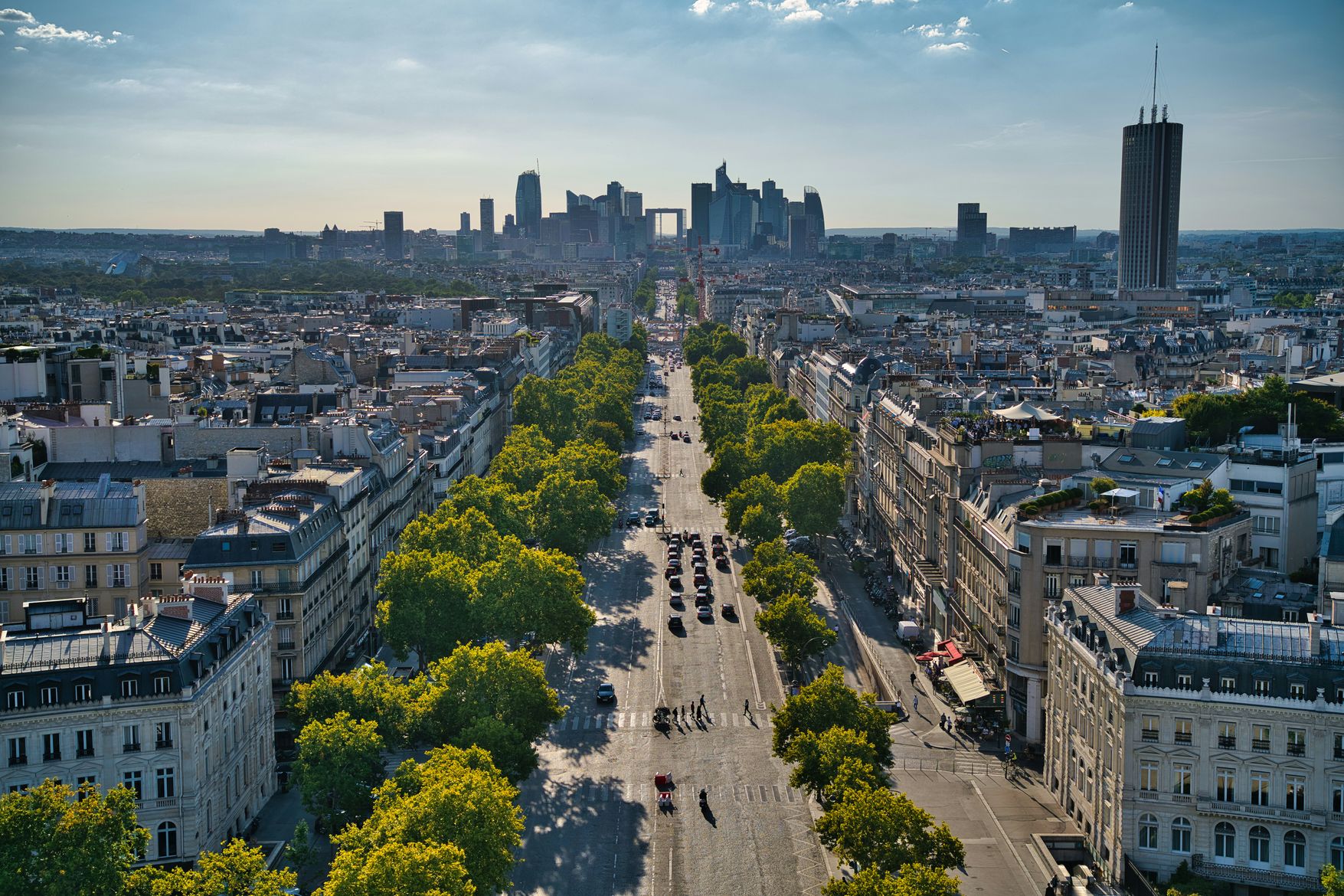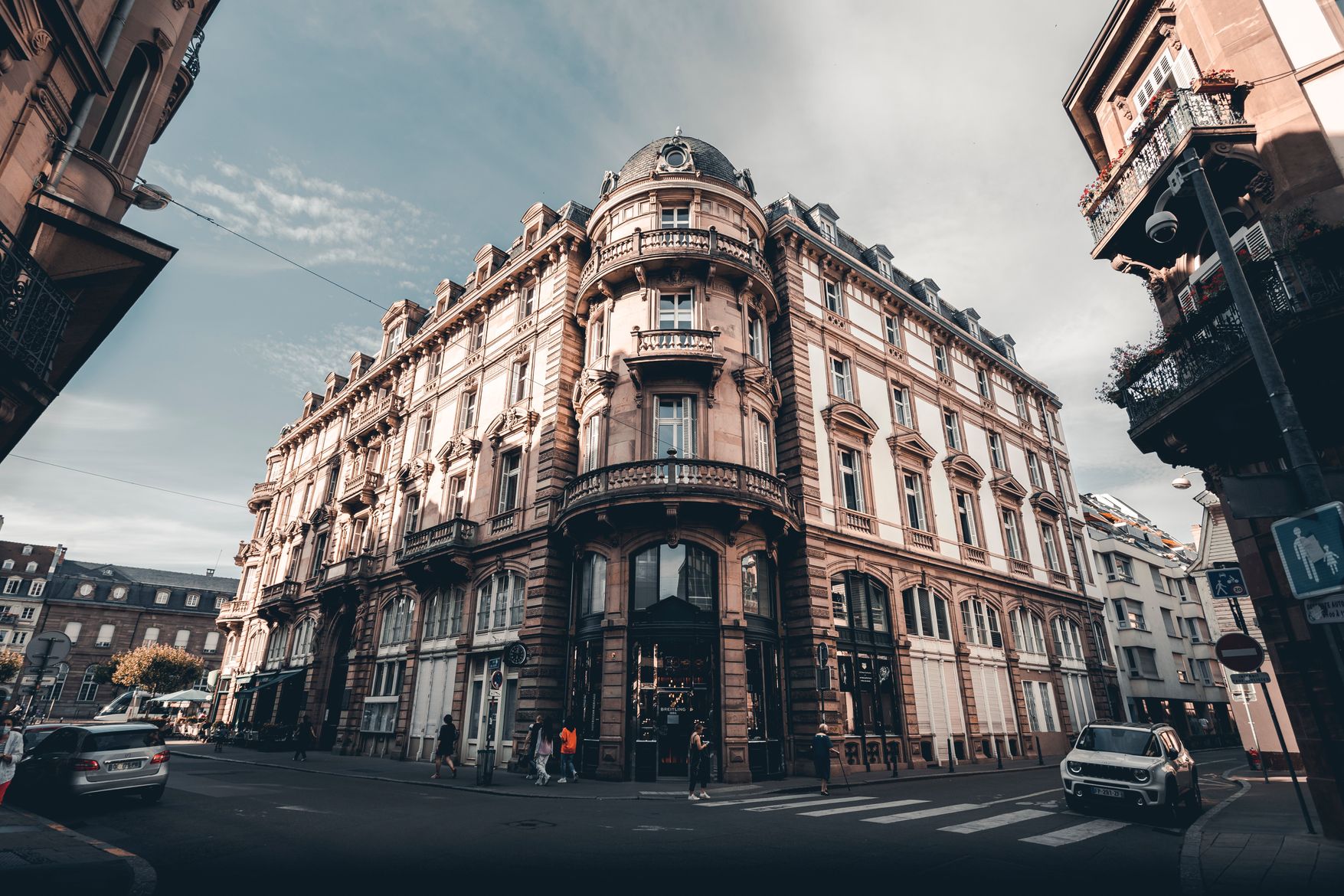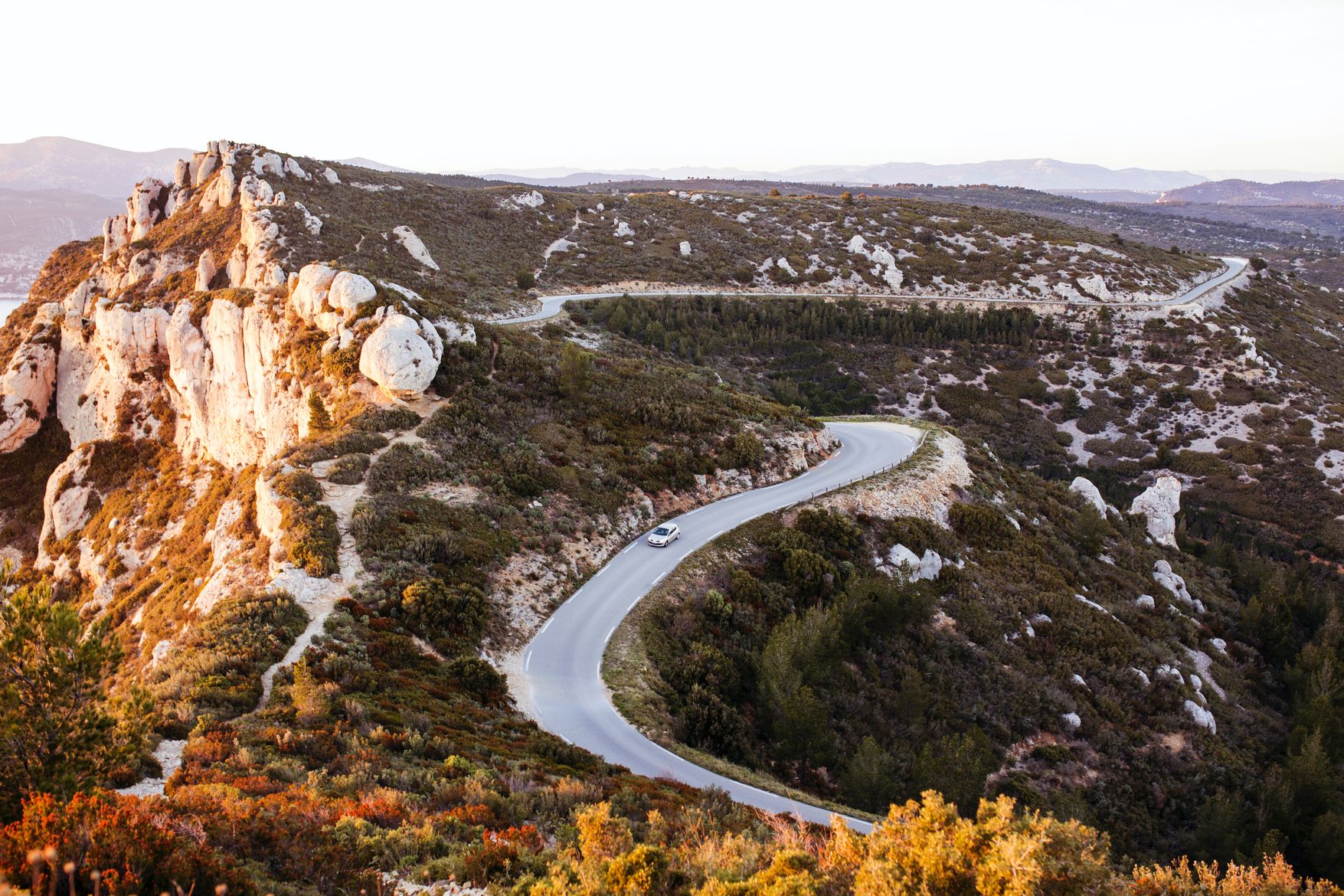France Traffic Guide
France Traffic Guide
France impresses families, couples, and singles with its unique location, offering a vast array of beautiful destinations. The country boasts romantic old towns, fascinating culture and architecture, rivers and mountains, and picturesque beaches. While France has a well-developed road network, in cities it is often more practical to use bicycles or public transport.
In this guide, you will learn what you should consider when driving in France. What traffic rules should you know? What are the road conditions like? And do you need a rental car, or is traveling with your own car possible?
France Traffic Rules Overview
- Driving is permitted in France from the age of 18. As France is part of the EU, a driver's license from another EU country is sufficient.
- In France, as in all of mainland Europe, traffic drives on the right side of the road.
- Trams always have right of way.
- On mountain roads, the vehicle moving uphill has priority.
- If there are no priority signs, the general rule is "right before left."
- The vehicle registration document should be carried at all times, along with an international insurance card.
- Within towns, the speed limit in France is generally 50 km/h. In most streets of Paris, the limit is 30 km/h.
- Outside built-up areas, the speed limit is usually 80 km/h to 90 km/h. Pay attention to signage; if in doubt, drive 80 km/h.
- On expressways, the speed limit is 110 km/h. However, if you have held your driver's license for less than three years, or it is raining, the limit is 100 km/h.
- On motorways, the speed limit is 130 km/h. However, if you have held your driver's license for less than three years, or it is raining, the limit is 110 km/h.
- Cars with trailers can only travel at 90 km/h on expressways and motorways if the total weight of the combination exceeds 3.5 tonnes.
- Heavy motorhomes are allowed to travel at 100 km/h on expressways and 110 km/h on motorways.
- Using a mobile phone while driving is only allowed with a hands-free system.
- Radar detectors are not permitted.
- Distractions while driving (such as eating, listening to loud music, or rummaging in the glove compartment) are prohibited.
- For safety reasons, driving must be done wearing solid footwear.
- The alcohol limit for drivers is 0.5 per mille. Novice drivers, who have had their license for less than three years, must not exceed a limit of 0.2 per mille.
- Parking and stopping restrictions are marked on the road. Blue markings indicate limited and/or paid parking with a parking disc, broken yellow stripes indicate a parking prohibition, and solid yellow stripes signify a no stopping and no parking restriction.
Driving in France
Roads in France
In France, there is a very dense road network, which makes it easy to travel by car. With approximately 8,000 kilometers of motorways, the largest cities are well connected.

Using the motorway usually incurs toll charges. The various types of roads are indicated by letters: A stands for motorway, N for a national road, and D for a departmental road.
Since July 2016, there is a new environmental and particulate matter sticker, Crit’Air, which restricts road access in Paris, Grenoble, Lyon, and Strasbourg. This means that only newer and lower-emission vehicles are permitted to drive in these areas.
Petrol Stations and Charging Points
Affordable petrol stations are mainly found at large supermarkets. Some of these may require prepayment. Motorway petrol stations are open 24 hours a day.
Petrol and Diesel: Most petrol stations offer unleaded petrol (95 octane), which contains up to 10% bioethanol and serves as a replacement for traditional unleaded petrol with 95 octane. When filling up with E10, it is important to ensure that the fuel meets the standards of the European norm EN 228 for petrol fuels. Since October 2012, this norm also includes uniform quality requirements for E10 fuels. An alternative option is unleaded Super Plus with 98 octane, which is also available.
Round symbols indicate different types of petrol, square symbols indicate diesel, and diamonds are used for gaseous fuels.

Electric Cars: If you plan to travel with an electric car, it should be well planned in advance. The majority of charging stations are in the north and south of France, especially along the main traffic routes. Some supermarkets, such as Lidl or Intermarché, offer free charging for customers.
Hydrogen Cars: In total, there are 44 hydrogen refuelling stations available in France. This puts France second to Germany in terms of the number of hydrogen refuelling stations in Europe. These stations are mainly found in large cities. The network is still expanding but is far from being comprehensive.
Many hydrogen refuelling stations offer only 350 bar instead of 700 bar. The ones with 700 bar are located in Paris, Grenoble, and Chambéry.
Rental Car or Own Car?
Driving to France is straightforward for travelers from other EU countries, with entry generally permitted for cars bearing EU number plates. While the international insurance card is not mandatory, it can be useful for quick claims processing in case of an accident.
For those who prefer not to drive their own car to France, rental cars are widely available, especially in cities. Numerous rental companies offer a range of vehicles to suit different needs. The minimum age to rent a car in France is 18, though additional fees for young drivers may apply until the age of 25. For certain vehicle classes, such as sports cars or luxury vehicles, there is usually a minimum rental age of 25.
Fines
Fines in France are relatively high.
If the police identify an offence, the driver must pay the amount on the spot.

If the fine is not paid, a security deposit must be provided, which can also lead to the vehicle being impounded.
Discounts are even offered for quick payment of the fine.
Excerpt from the fine catalogue:
- Speeding (up to 20 km/h over the limit): from €68 (approx. £57)
- Speeding (20 km/h to 49 km/h over the limit): from €135 (approx. £113)
- Speeding (50 km/h or more over the limit): €1,500 (approx. £1,260)
- Drink driving: from €135 (approx. £113)
- Using a mobile phone while driving: from €135 (approx. £113)
- Not wearing a seatbelt: from €135 (approx. £113)
- Parking violation: from €15 (approx. £13)
Summary
Exploring France by car is definitely worthwhile if you want to see the country in all its facets. The roads are well developed, and France is easily accessible by your own vehicle. However, in cities, you will find it easier to get around by bicycle or public transport.
► Here you can find more information about the toll regulations in France to be well-prepared for your trip.
